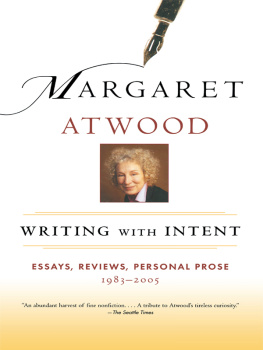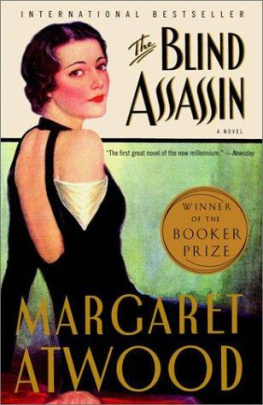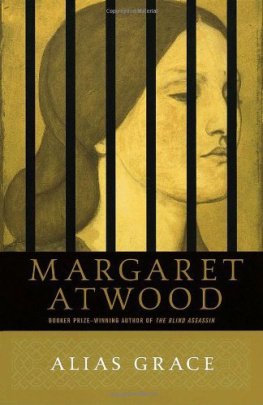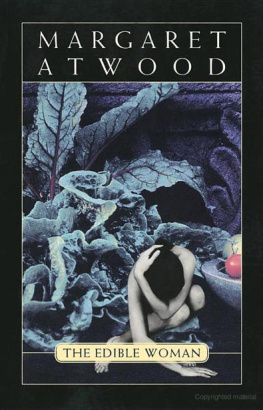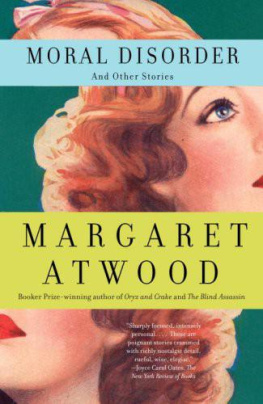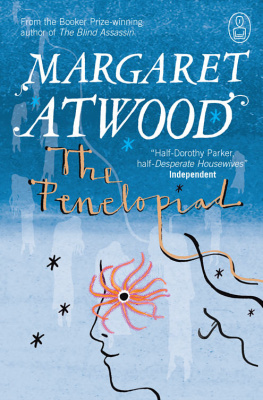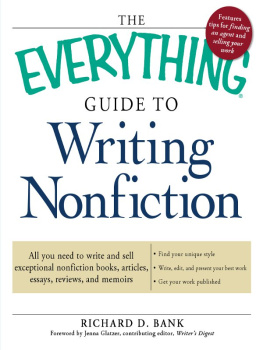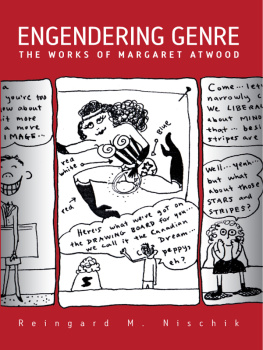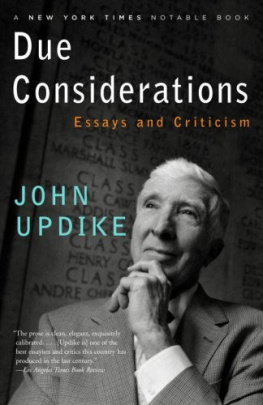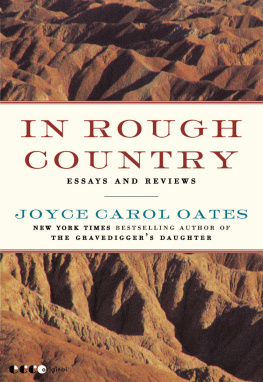WRITING
with INTENT
Essays, Reviews, Personal Prose:
19832005
MARGARET ATWOOD
CARROLL & GRAF PUBLISHERS
NEW YORK
WRITING WITH INTENT
Essays, Reviews, Personal Prose: 19832005
Carroll & Graf Publishers
An Imprint of Avalon Publishing Group Inc.
245 West 17th Street
11th Floor New York, NY 10011

Copyright 2004, 2005 by O.W. Toad, Ltd.
First Carroll & Graf edition 2005
A different collection containing some of the essays in this book has been published under the title Moving Targets in Canada by House of Anansi Press.
All rights reserved. No part of this book may be reproduced in whole or in part without written permission from the publisher, except by reviewers who may quote brief excerpts in connection with a review in a newspaper, magazine, or electronic publication; nor may any part of this book be reproduced, stored in a retrieval system, or transmitted in any form or by any means electronic, mechanical, photocopying, recording, or other, without written permission from the publisher.
Library of Congress Cataloging-in-Publication Data is available.
ISBN: 978-0-7867-1767-5
eBook ISBN: 9780786725144
9 8 7 6 5 4 3 2 1
Interior design by Maria E. Torres
Printed in the United States of America Distributed by Publishers Group West
For my family
WRITING
with INTENT
Introduction
W riting with Intent is an assemblage of occasional piecesthat is, pieces written for specific occasions. Some of the occasions have been books written by other people, resulting in book reviews and articles; some of them have been political in nature, resulting in journalism of various kinds; some of themincreasingly, as time has moved onhave been the deaths of people Ive known, often fellow writers, so Ive been asked to write obituaries at short notice and in odd locations. The article on Carol Shields, for instance, was written on a moving train.
When you say the titles of your books out loud, people sometimes hear them wrong. Ive seen Bluebeards Egg become Bluebirds Egg, The Handmaids Tale become The Handmaidens Tale, Oryx and Crake become Onyxand Crake. When I told someone that this book was called Writing with Intent, she said, Writing within Tentsi How do you mean? But this writing sometimes has been done in tents, or in their equivalent: provisional shelters with just enough light to see by, and just enough heat to make it possible to get on with the job.
Looking back at some of these essaysessay in the sense of attemptI feel I might write them in another way if I were writing them today. But then, Id be unlikely to write them today. Everything we do is embedded in time, and time changes not only us, but our point of view as well. Also, you find out what happened. One years prophecy becomes the next years certainty, and the year after that, its history. How could I know, when visiting Afghanistan in 1978six weeks before President Muhammad Daoud was assassinated, initiating the chain of events were caught in todaythat this beautiful, strange country would become unrecognizable over the next twenty-five years? Were always looking over our shoulders, wondering why we missed the clues that seem so obvious to us in retrospect.
I began writing occasional pieces in the 1950s, when I was sixteen: I was the designated reporter for my Toronto high schools Home and School Association meetings, and my accounts of these sometimes fraught events appeared in the mimeographed newsletter that was sent to the parents to keep them informed on such topics as the proper length of girls skirts. By this age I had decided to be a dedicated novelista very dedicated one, with the resulting lung illnesses, unhappy affairs, alcoholism, and early death that would surely followbut I knew I would have to have a day job in order to afford the squalid flat and the absinthe, and the Home and School Association newsletter was my first foray into the humiliating world of Grub Street hackwork. Did I learn anything from this experience? I ought to have learned that for every tale there is a teller but also a listener and that some jokes are not suitable for all occasions, but that particular lesson took a while to sink in.
Once at university, I took to producing book reviews and articles for the literary magazinesome of them under other names, since we liked to pretend, back then, that there were more people interested in the arts than there actually were. Like many young people I was demanding and intolerant, but I didnt let that show too much in the reviews, which were inclined to be amiably condescending. I continued with my reviewing while I was attending Harvard Graduate School in the 1960s, and then while I was holding down various low-paying jobs and publishing poetry and fiction in small magazines.
Eventually I found myself appearing in larger places such as the NewYork Times and the Washington Post and the New York Review of Books and the Times of London and the Guardian, but that took a while. Looking back over this gathering of pages I see that my interests have remained fairly constant over the decades, although I like to believe their scope has broadened somewhat. Some of my earlier concernsgender issues, environmental worrieswere considered lunatic fringe when I first voiced them, but have since moved to the center of the opinion stage. I dislike advocacy writingits not fun, because the issues that generate it are not funbut I feel compelled to do a certain amount of it anyway. The effects are not always pleasant, since what may be simple common sense to one person is annoying polemic to another.

